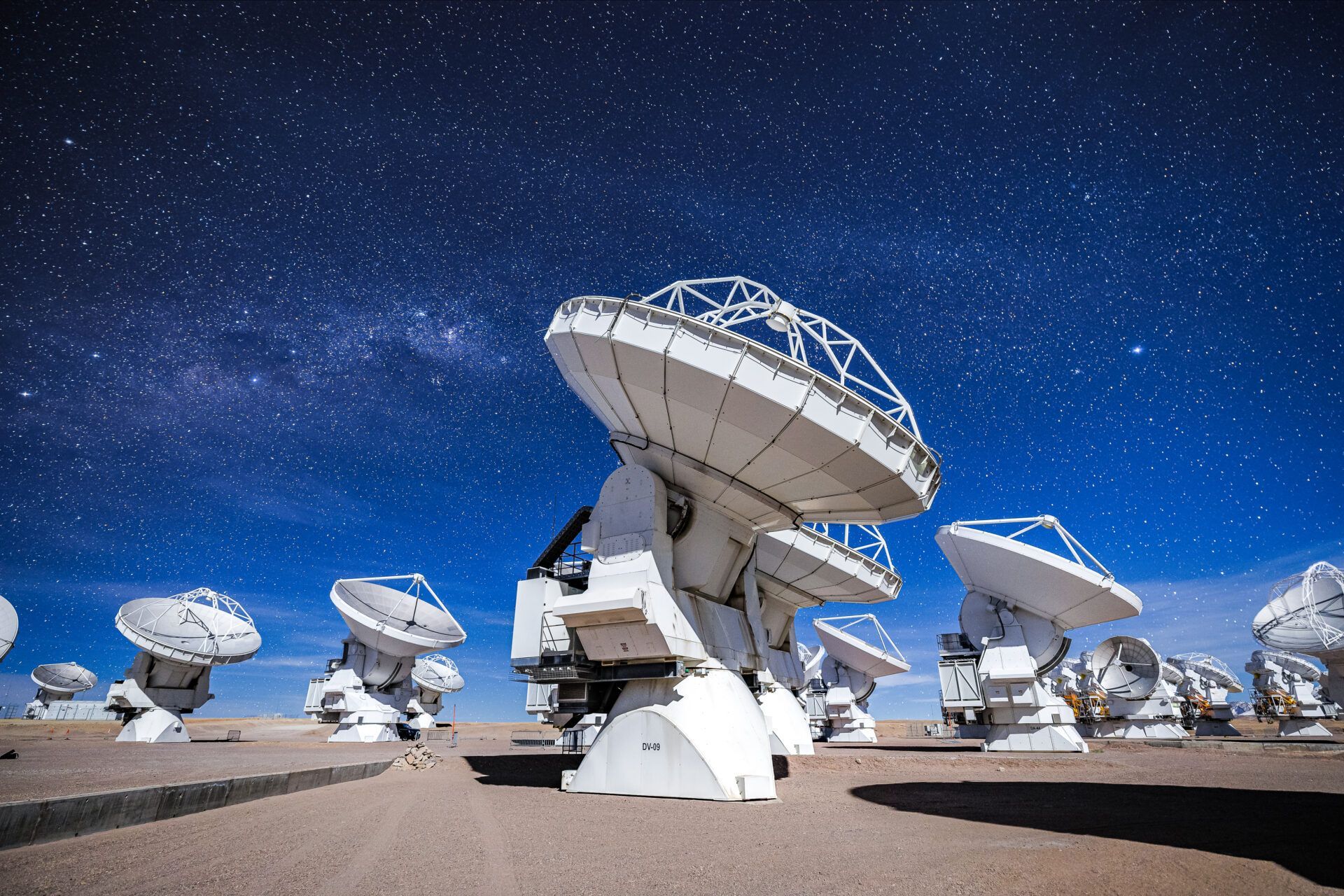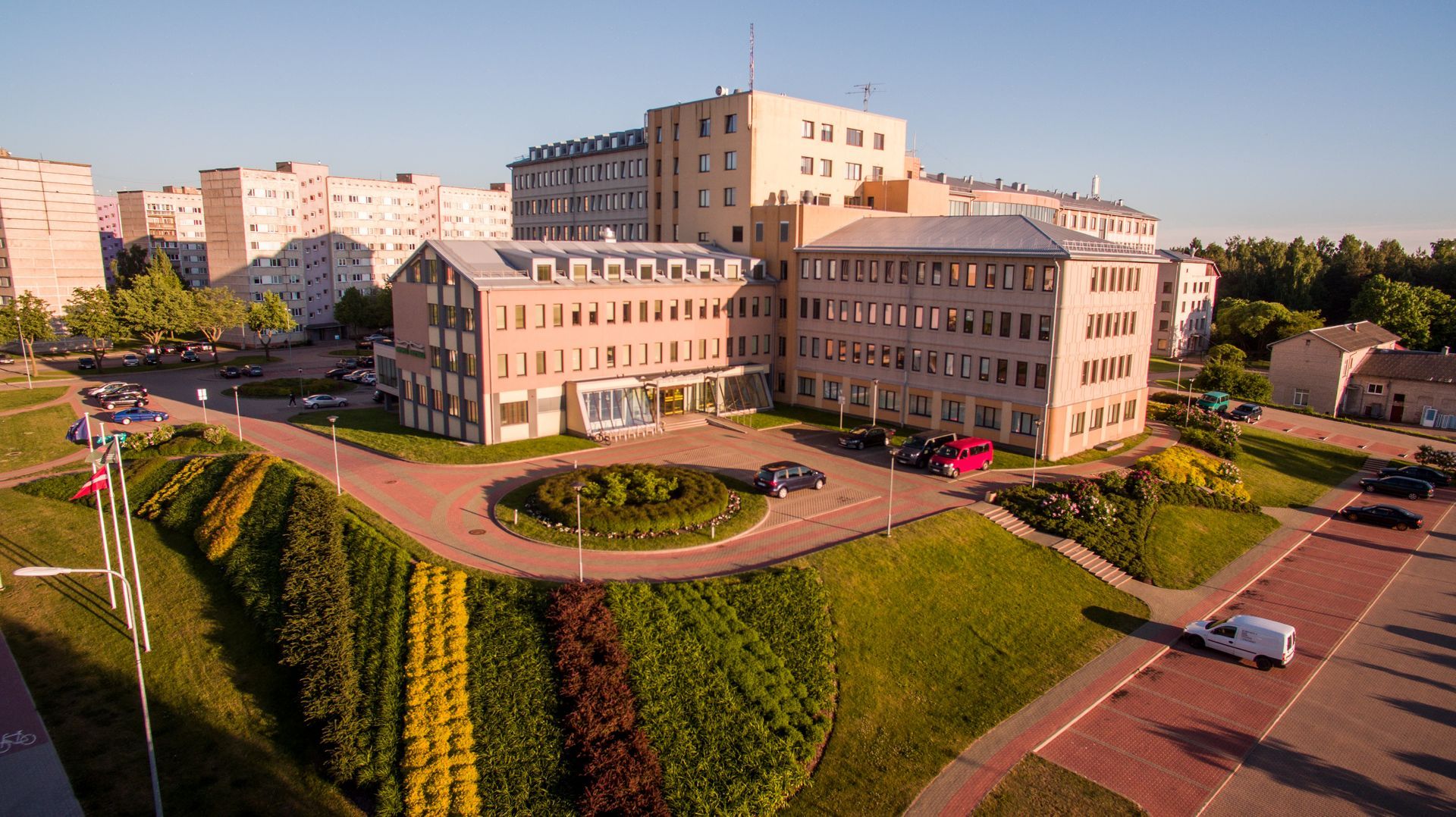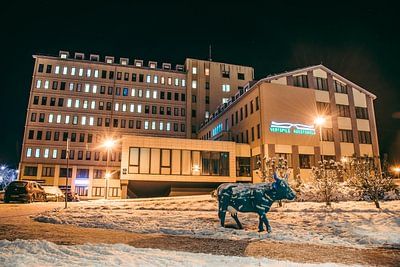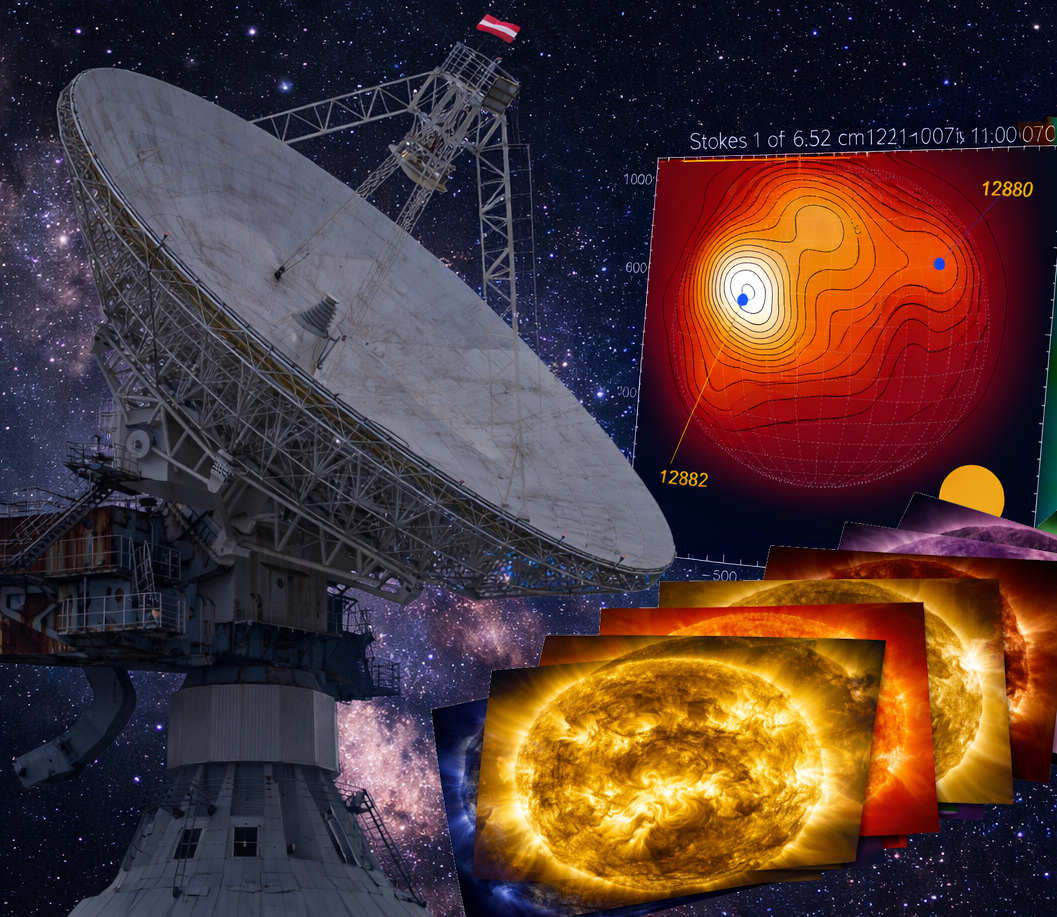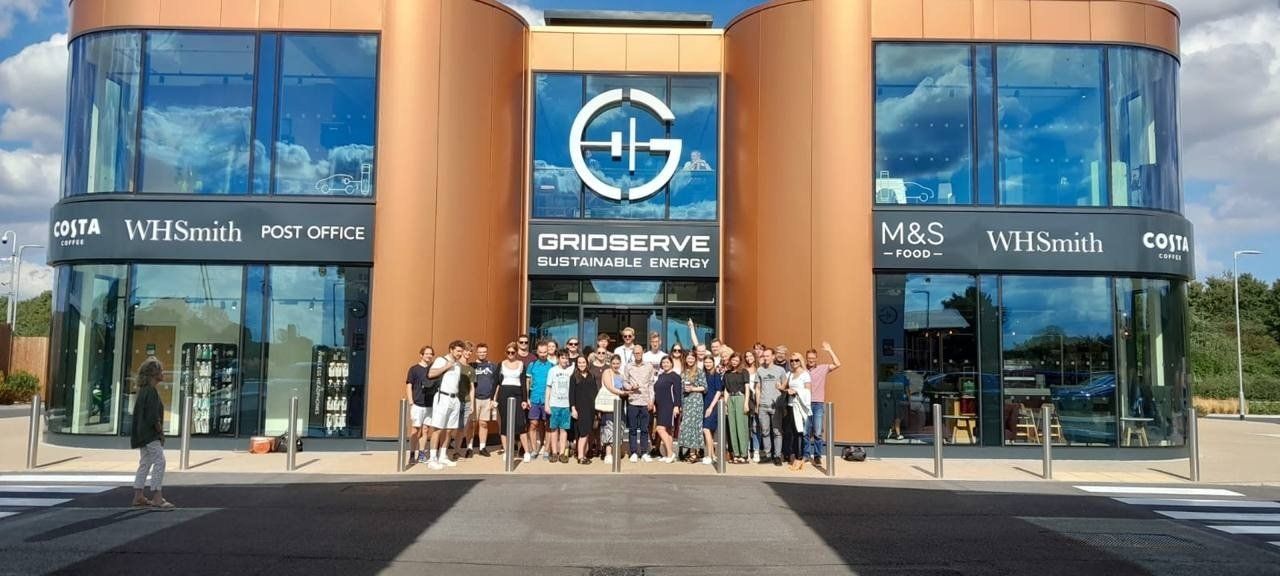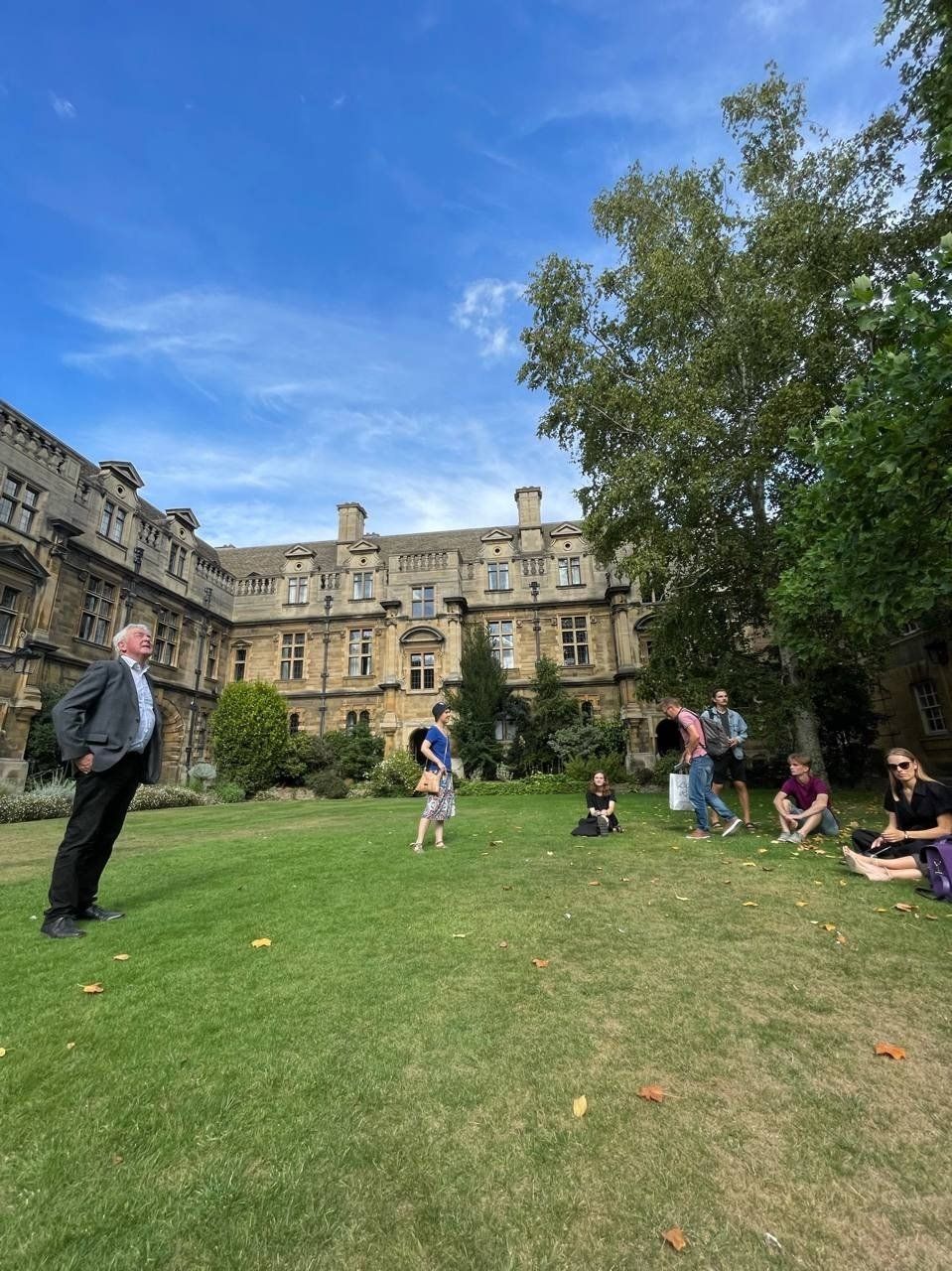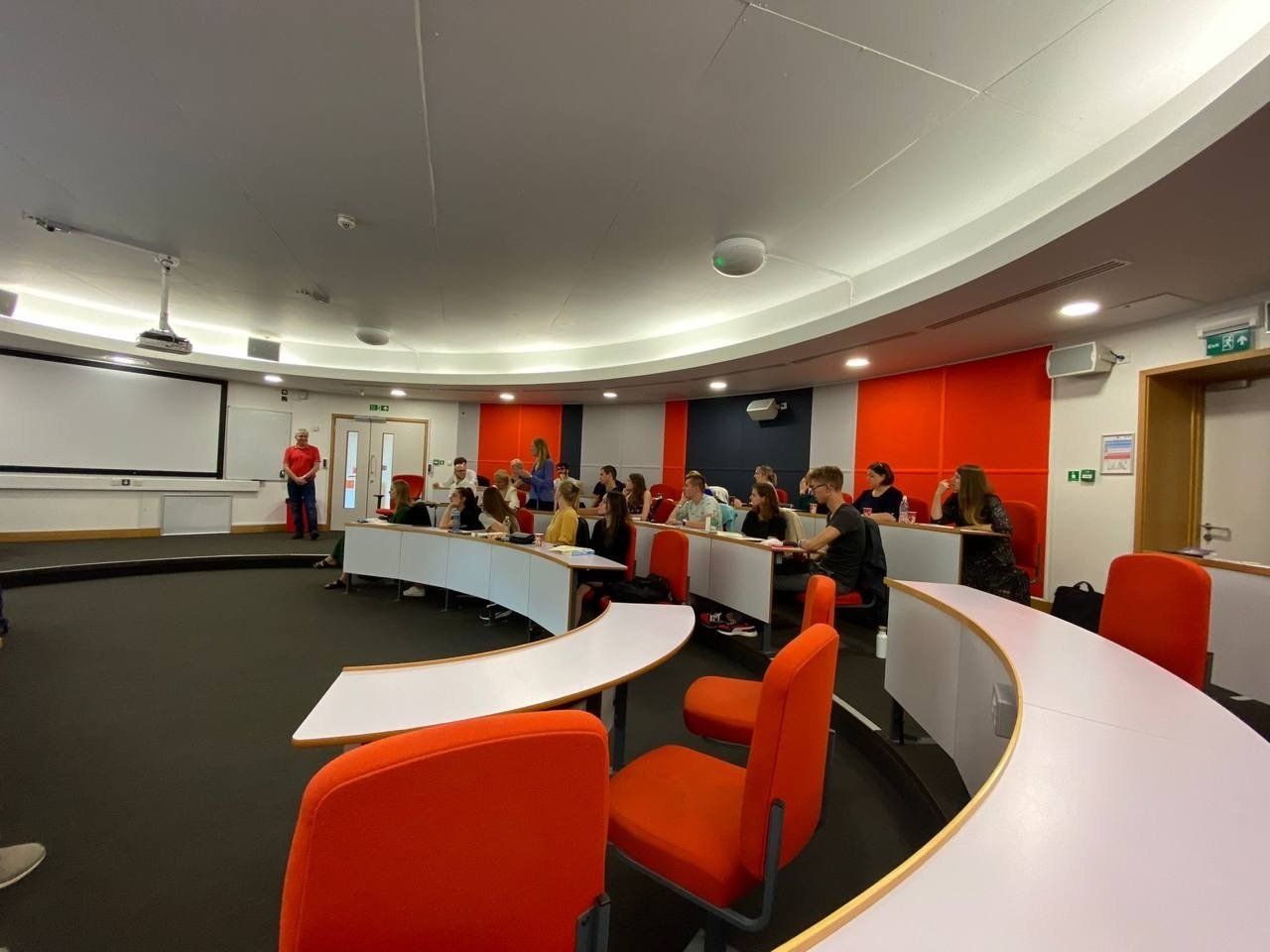Students of Ventspils University of Applied Sciences attend an entrepreneurship camp in Cambridge
Anna Fiļipenoka and Dāvids Biķernieks are 3rd year students at Ventspils University of Applied Sciences bachelor study programme "Start-Up Management", who spent 5 days in Cambridge in August this year. There they had the opportunity to gain a lot of new knowledge, see several interesting sites, but most importantly understand how sustainable their business idea is. The camp was organised by "CONNECT Latvija" in collaboration with partners including Ventspils University of Applied Sciences and their aime is to encourage young people to develop their business ideas.
Why did you apply?
We were encouraged to apply for this entrepreneurship camp by our programme mentor Gvido Grīnbergs, who explained that this would be a great opportunity to meet new people and gain knowledge through various lectures. Before applying, we had also just recently started working on our business idea in the incubator, so it seemed particularly appropriate to participate in this kind of event. The application process was very simple - we had to write a motivation letter and then we just had to wait for a reply that we were approved.
The camp took place from 22nd to 27th August, from Monday to Saturday. We also had the opportunity to go on a short trip to London before the event.
What project are you working on at the business incubator?
The idea is mainly about and around corporate sustainability, specifically among employees. We wanted to create an app with a reward system to motivate employees to make sustainable choices. Since we had the idea, we saw this camp as an opportunity to develop it.
What did you like best about this camp?
It should definitely be noted that all costs were covered by the university, which was really amazing!
What we really liked was that it was a great opportunity to network with a variety of great people from very different fields – from web developers to people who talk about copywriting. There were representatives from venture capital, various investors, business people and social entrepreneurs. As an example, the head of ZNotes, who is from Cambridge himself, talked about how his business has grown from an idea and a website where he made notes of school subjects to a huge non profit company with 14 000 monthly users.
The various excursions were also great, for example to the incubator, where it was inspiring to hear how ideas are created there, and Anna's favourite excursion to the electric car charging station Gridserve is definitely worth mentioning. This electric car charging station was special because it was the first of its kind in the world where solar panels are positioned both upwards towards the sun and downwards also picking up the headlights of cars and converting them into energy. If that was not enough, the station also had offices of all kinds, a children's corner and a café, so that people could spend their time productively while waiting for their cars to be recharged. This was a great example of how to create a useful place for different communities in the middle of nowhere. It is a station with added value.
What did you take home from this event?
Anna: I was very inspired by the academic ecosystem in Cambridge. It was very interesting to see how things work there and how studies are run in such a place. It was also a chance to learn that the University of Cambridge is actually made up of several colleges that together make up this ecosystem.
David: The main thing I took away was just realising how important networking is. Although this was not my first event where I needed to network, it was only at this camp that I realised how wide networks can be and how important it can be in life to know more people, because they can help you with different challenges in the future and by working together you can achieve more.
Would you inspire others to apply?
Absolutely, especially those who are interested in the UK and its culture as well as entrepreneurship. You will get to know a lot of people, not only from your camp group but also from outside. And you'll have a great opportunity to test the sustainability of your idea. There is the chance to get feedback from investors, different perspectives and great ideas from different angles. We had this great opportunity to hear one investor's perspective on our business idea, during which she revealed how she, as an investor, chooses where to invest, which is why we realised that our idea is viable and we are now working on the technical side of it.
Share on other platforms
Other news


